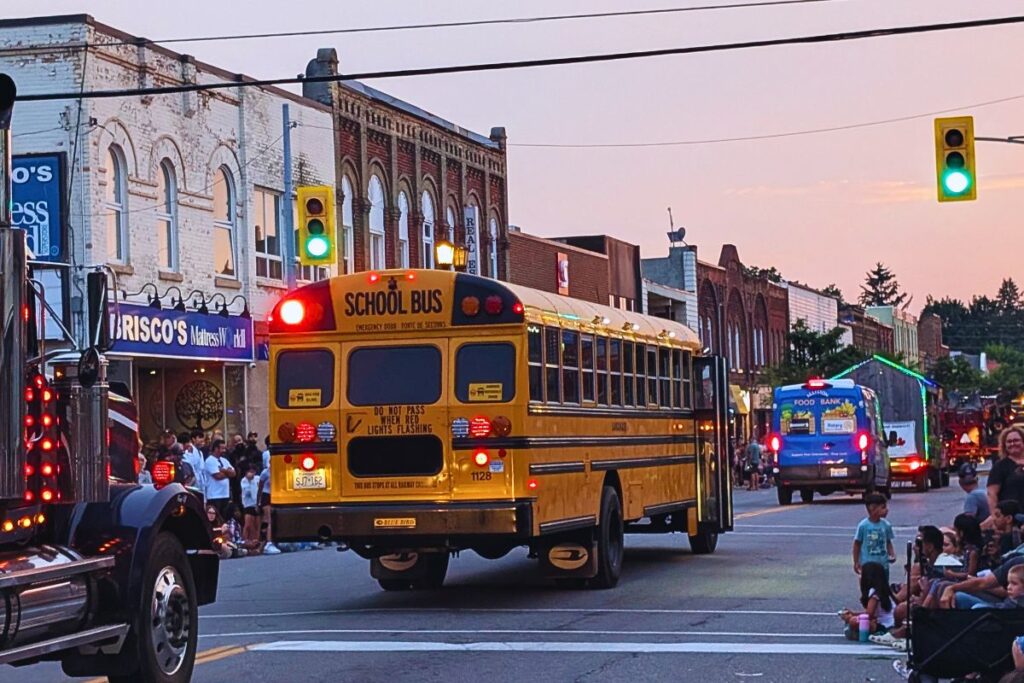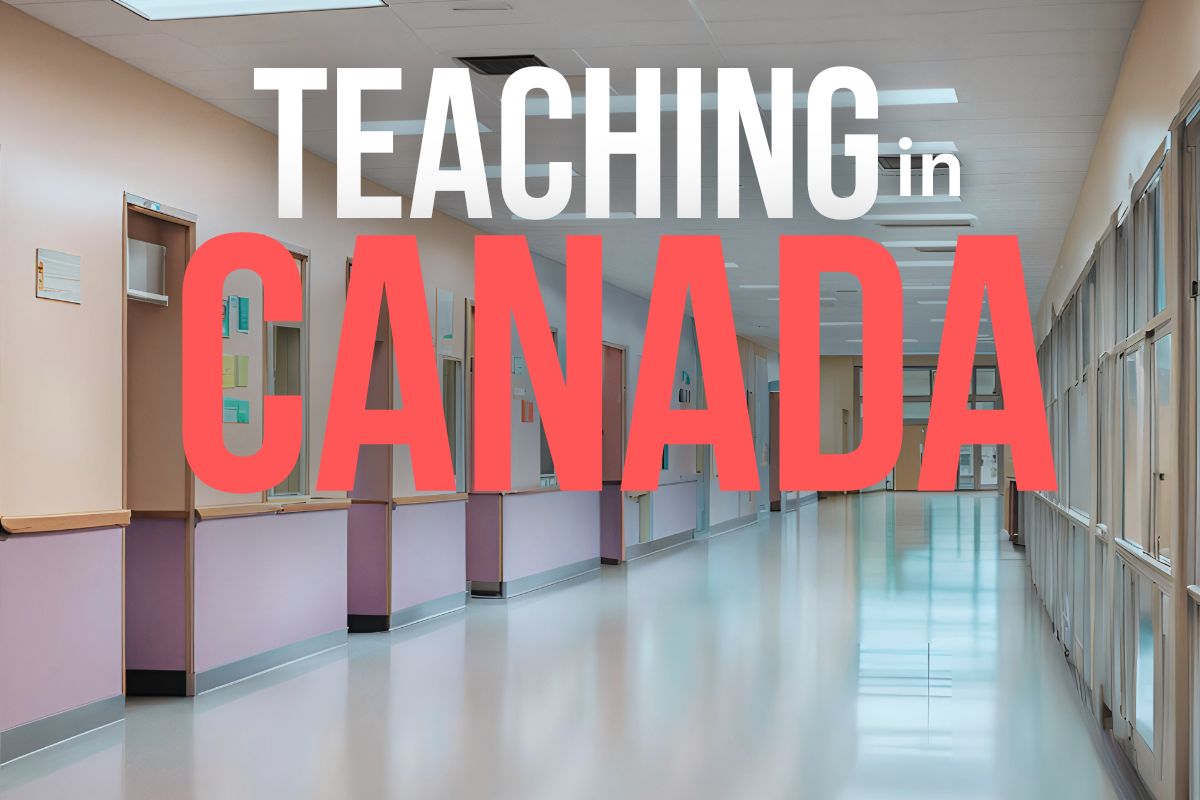Teaching in Canada: Everything You Need to Know
The Misfit Teacher contains affiliate links which means that if you make a purchase using one of these links, I may receive compensation at no extra cost to you. Read my disclaimer for more information.
Looking for information on teaching in Canada?
I was a teacher in Canada for almost 10 years, and I’m also a parent of kids in the school system. I’m also a school volunteer – so although I quit teaching, I am still involved and contribute to the public school system.
Teachers in Canada are some of the highest paid in the world, and there are many things different about the work atmosphere in Canada for teachers than in other countries.
Here are the fast facts that you need to know about teaching in Canada.
Key Things to Know About Teaching in Canada
Education is organized by province. This is the most important thing to know. So the way education is organized (school year timeline, teacher pay, etc) are different from province to province.
We have publicly funded secular schools, and Catholic schools. Publicly funded Catholic schools are located in Alberta, Saskatchewan, and Ontario. Catholic is the only religion with publicly funded schools in Canada (and there has been debate about this for a long time.)
There are also publicly funded French schools throughout all of Canada. There are public English schools (kids learn in English, and learn French as a Second Language) and public French schools (where kids learn in French, and learn English as a Second Language!)

The school year typically runs from early September to late June. Schools in Canada typically start back up the Tuesday after Labour Day, and end in late June. This is the most common timeline in Canada, but you may find some places that are off by a week or two.
Teacher Pay in Canada
Canada is one of the top countries for teacher salaries. Salaries vary by province because education is organized provincially. In Ontario (where I live), teachers with the maximum amount of experience now make $120,000 per year.
Teachers of all grades (K to 12) earn roughly the same amount, the pay can vary depending on region, their school board, and their qualifications and experience. The only way to know the exact teacher salary where you live or want to work is to look up the collective agreement. Salaries are negotiated every 3 years.
Private schools are not as common in Canada, but they do exist, and are becoming more common. (There are religious schools, forest schools, Montessori schools, fancy colleges, etc. My daughter goes to a forest school, which are becoming more and more common throughout Canada.) Most private schools however, pay significantly less than the public school boards
You can retire at age 55 with a full pension. This isn’t guaranteed, as it depends on when you started teaching. But there’s the opportunity to retire at age 55 (relatively young on the grand scale of things) with a full pension as a teacher in Canada
How Easy is it to Get a Job Teaching in Canada?
Speaking French will get you a job quicker! If you speak French reasonably fluently, you will have your pick on where in Canada you work. French teachers are in demand all over the country!
You need a teaching degree in order to be a substitute teacher. In many countries, like the US, anyone can supply teach (as we call it.) While we do sometimes hire unqualified supplies for emergencies, you generally need a Bachelor of Education to do any teaching in Canada, including substitute teaching.
Many other subjects (besides French) are still on the competitive side. Teaching anything other than French, and high school math will be a bit more competitive, but it really depends on where you plan on working. In a high-density area like Toronto, it will take longer to find work. Other places, they may hire you on the spot!

Teaching was extremely hard to get into in Canada 10-15 years ago; people waited years sometimes to get hired as a teacher, and many gave up because there were too many qualified teachers competing for too few jobs! But, it has become much easier in recent years. Read more details about how in-demand teachers are in Canada here.
If you want to teach French in Canada, you generally need to be pretty fluent – but some places are getting so desperate that they’re hiring people who know the language minimally. As a rule though, you need to be native-level French speaker to teach in full French school boards, and you need to be fairly fluent to teach French as a Second Language in English school boards.
Those interested in working in the Catholic school system need to be Catholic, usually. You generally need to be baptized Catholic (and sometimes have a pastoral letter from a priest) in order to work in a Catholic school.
Working Conditions for Teachers in Canada
Split grades are very, very common! We often have split grades, such as a Grade 4/5 split, Grade 6/7 split, etc. We tend to say Grade six, Grade one, (rather than ‘sixth grade, first grade like Americans.. although this is changing with more American media influence)
Teaching in Canada is known for being a stressful, demanding job – it has become more so over the past couple decades, with growing problems with student behaviour, societal changes, funding cuts, and many other factors.

Other Interesting Facts about Teaching in Canada
Most elemenatary school students bring a packed lunch. Unfortunately, school cafeterias are not common in Canada for elementary students. And highschool cafeterias are very basic. Most students throughout all grades bring a packed lunch. (Which teachers often need to as well.)
There’s such a thing as Canadian spelling. Not related to teaching specifically, but useful for teachers to know – we have our own Canadian spelling. Words like colour, favourite are spelled with a ‘u’ like in the UK.
We sing the Canadian national anthem at the beginning of the day, in most provinces. In Ontario, it’s every day. In other provinces, like BC, its only sometimes. Recently, a land acknowledgement has been added as well.
Final Thoughts on Teaching in Canada
Being a teacher in Canada has many pros and cons, but overall – its an above average paid job, and if you love teaching, then Canada is a good place to work in education.
Most Canadian teachers would agree that our working conditions are better than our neighbours to the south. However, increasingly, there are people burnout out and dealing with a lot of stressors – difficult parents, violence in schools, out-of-control cellphone use, and many other things.






